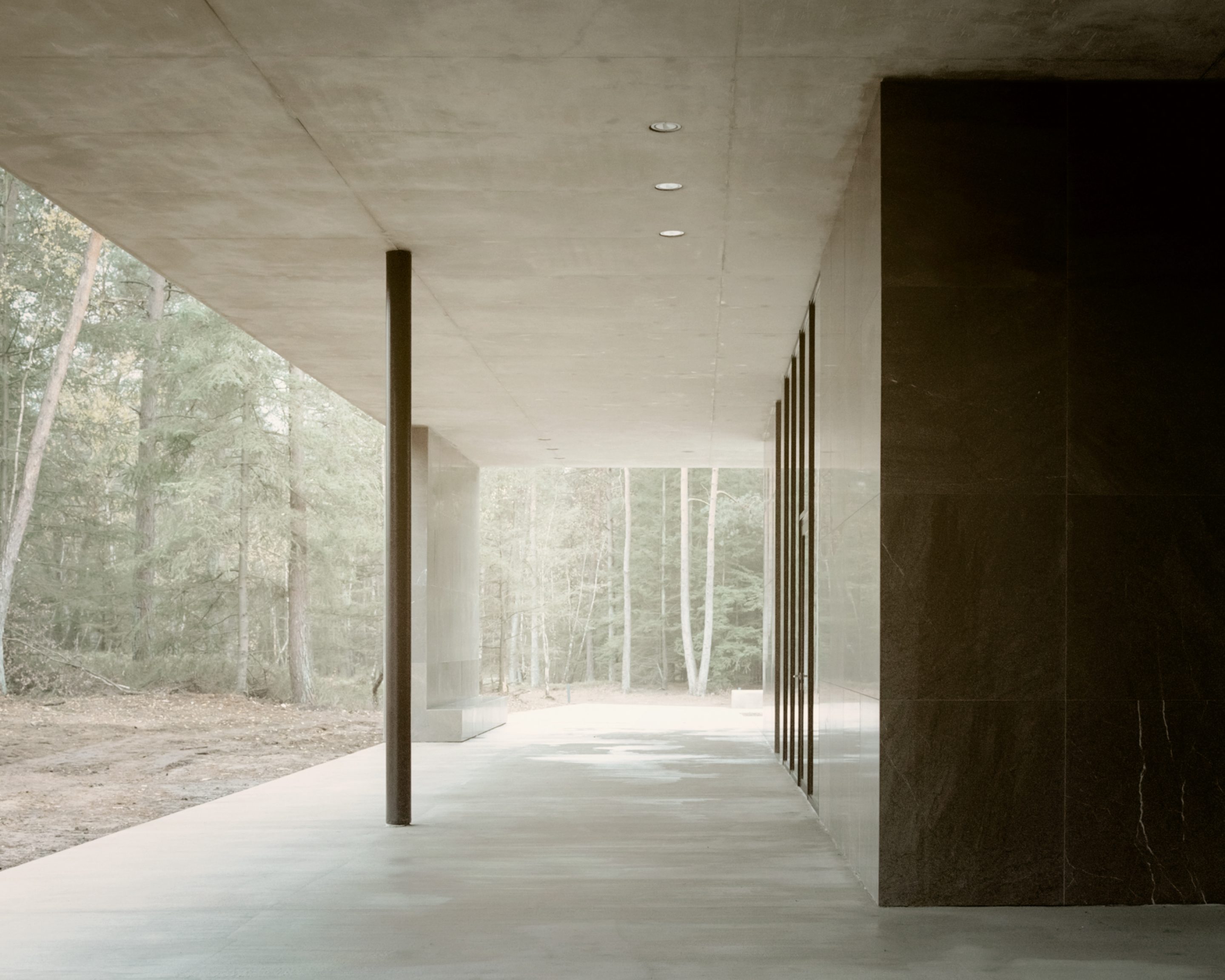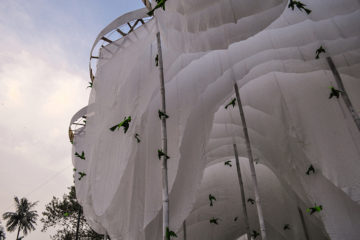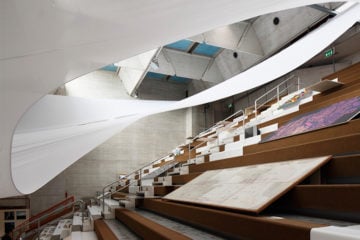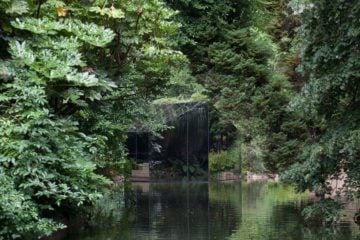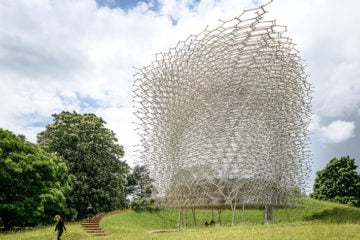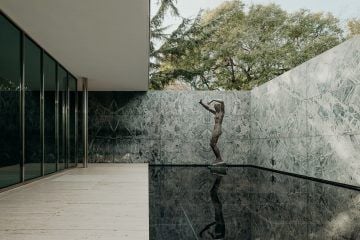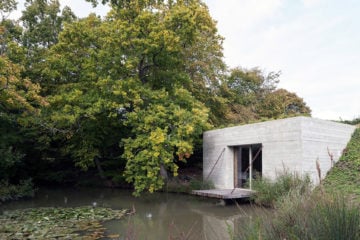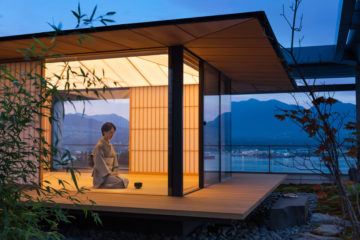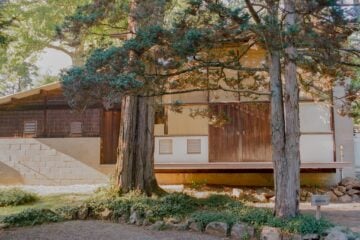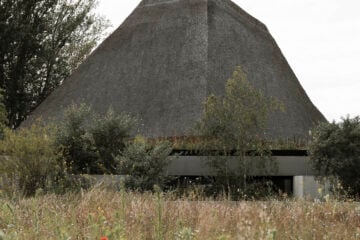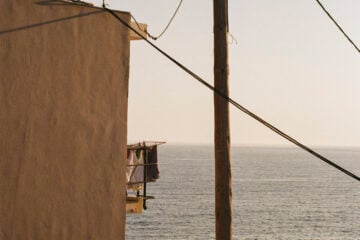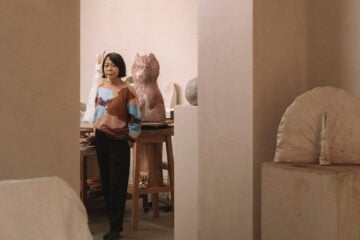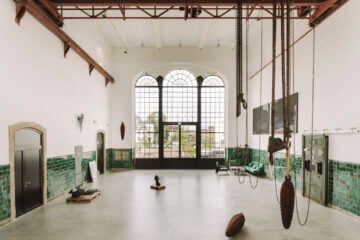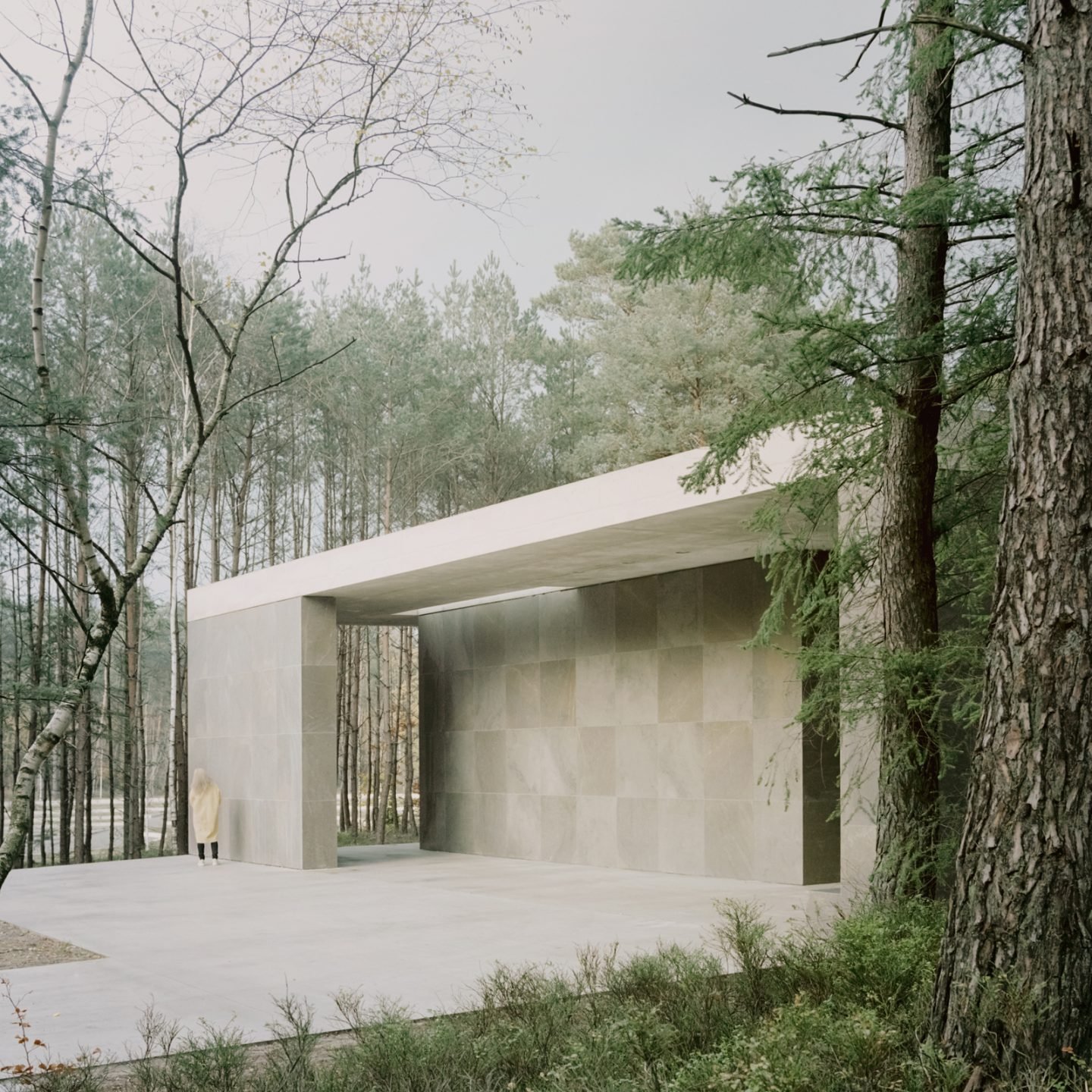
KAAN Architecten’s Brutalist Loenen Pavilion, A Calm Site For Remembrance Amidst Nature
- Name
- Kaan Architecten
- Project
- Loenen Pavilion
- Images
- Simone Bossi
- Words
- IGNANT
In Loenen, a village located in Apeldoorn, in the south of The Netherlands, Dutch firm KAAN Architecten was commissioned by the Netherlands War Graves Foundation to design a multifunctional building: ‘Loenen Pavilion’ commemorates the Dutch victims of the Second World War, and more victims of recent international conflicts.
During World War II, The Netherlands was the scene of heavy conflict. According to the official website for the Netherlands, from 1940 until 1945, the country was under German control. During this time, many Dutch citizens were oppressed, forced from their homes, starved, and forced to work in factories by their occupiers. “Almost three-quarters of the Netherlands’ Jewish population had been deported to concentration and extermination camps by the time the war ended,” the site explains. Many people lost their lives, and to honor them, the new ‘Loenen Pavilion’ was created. In its conception, KAAN Architecten aimed to let the trees dictate the structure’s form, to achieve a fusion of architecture and landscaped nature. The pavilion exists “like a horizontal white line settled amidst slender birch and pine trees,” the firm explains. It was kept as narrow as possible to preserve a maximum number of trees between the two open spaces.
“The serene atmosphere and lack of intrusiveness has been achieved by sensitive architectural gestures, proposing an intimate yet open and inviting building,” the firm continues. Discreetly detached from any religious connotations, the pavilion conveys a calming experience thanks to its interiors, the unconventional open spatial configuration, the abundant natural light, and the elegant choice of materials. Corridors were avoided so the pavilion could remain narrow, and functions can flow logically into one another. Everything within the space of the pavilion is related to remembrance and commemoration.
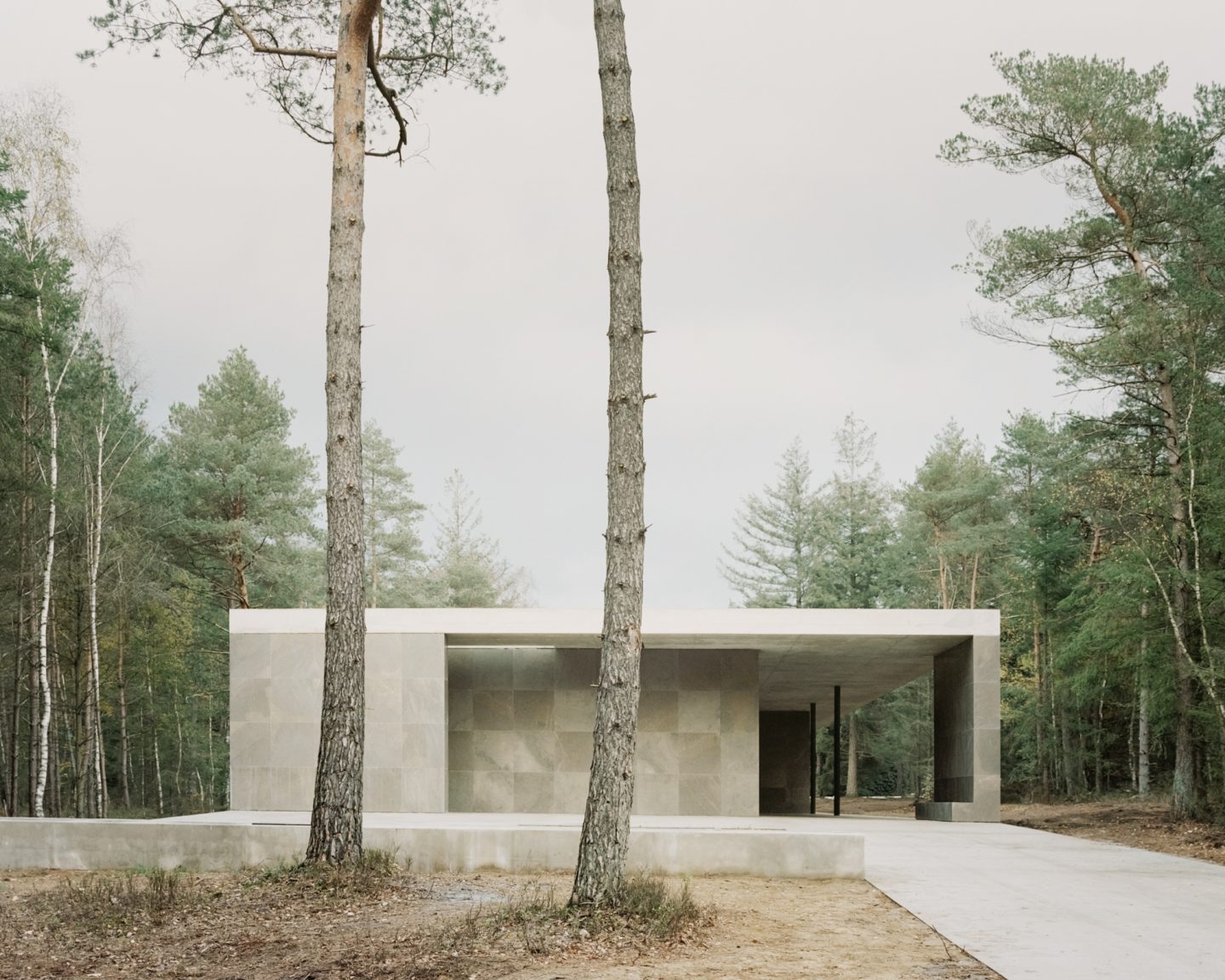
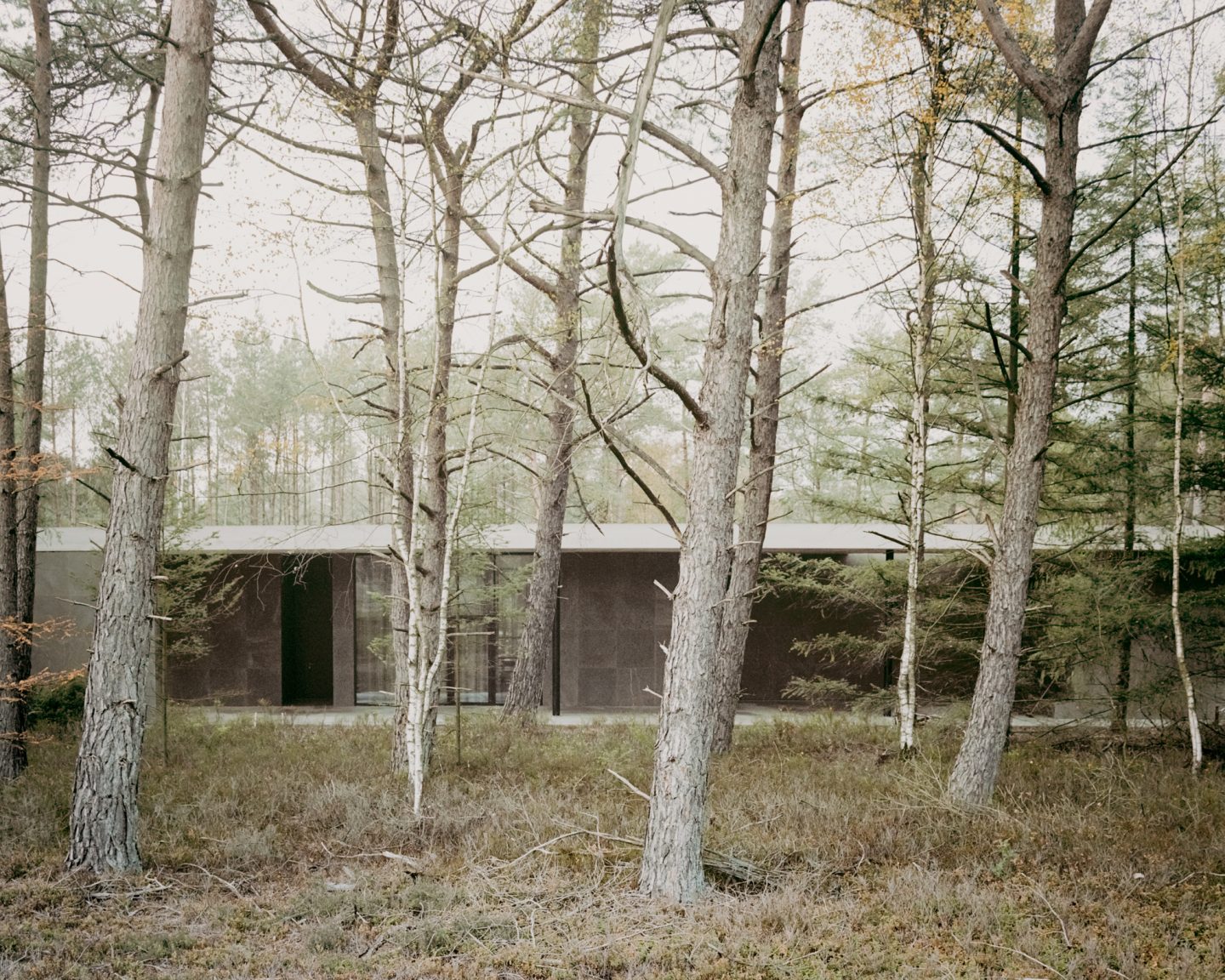
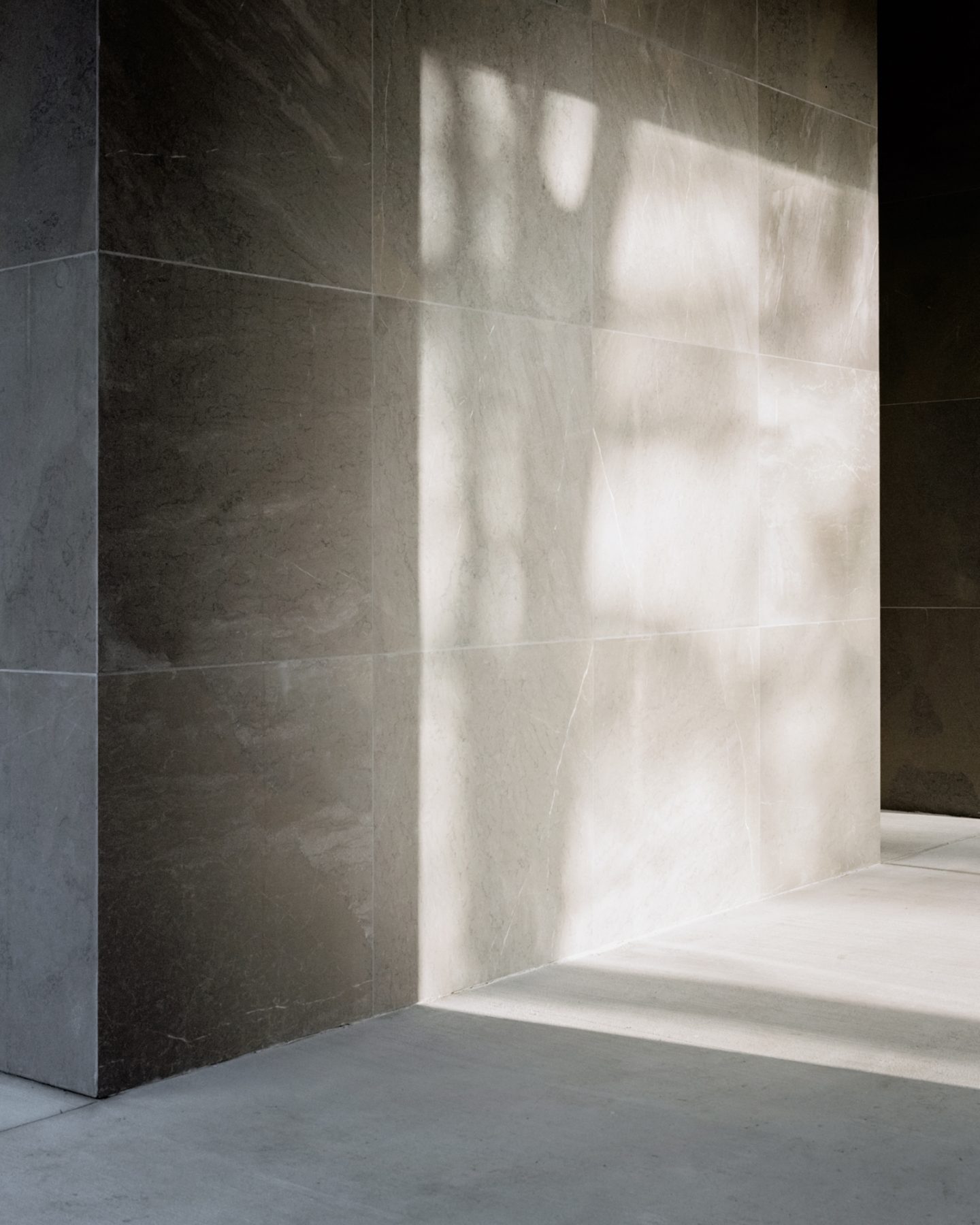
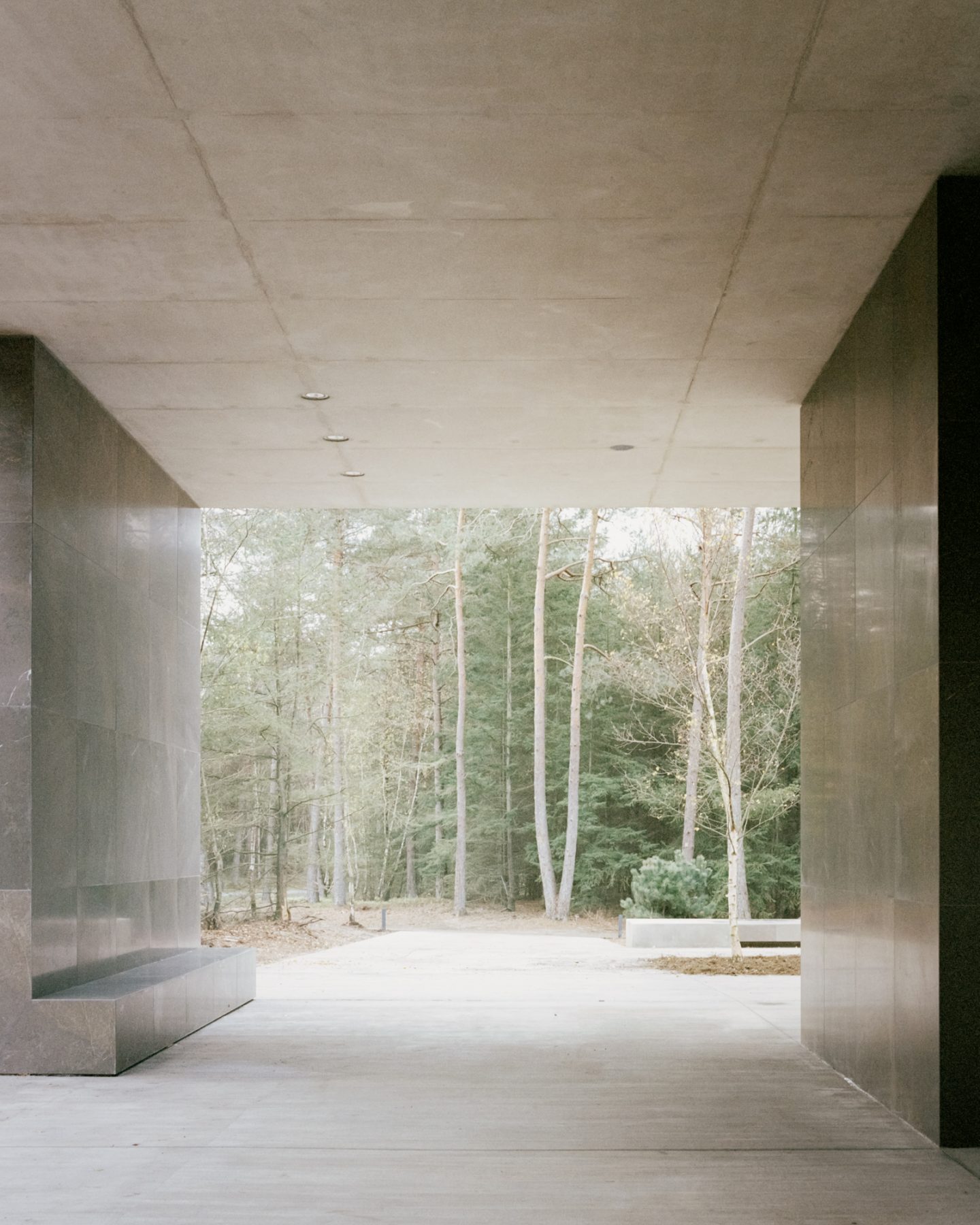
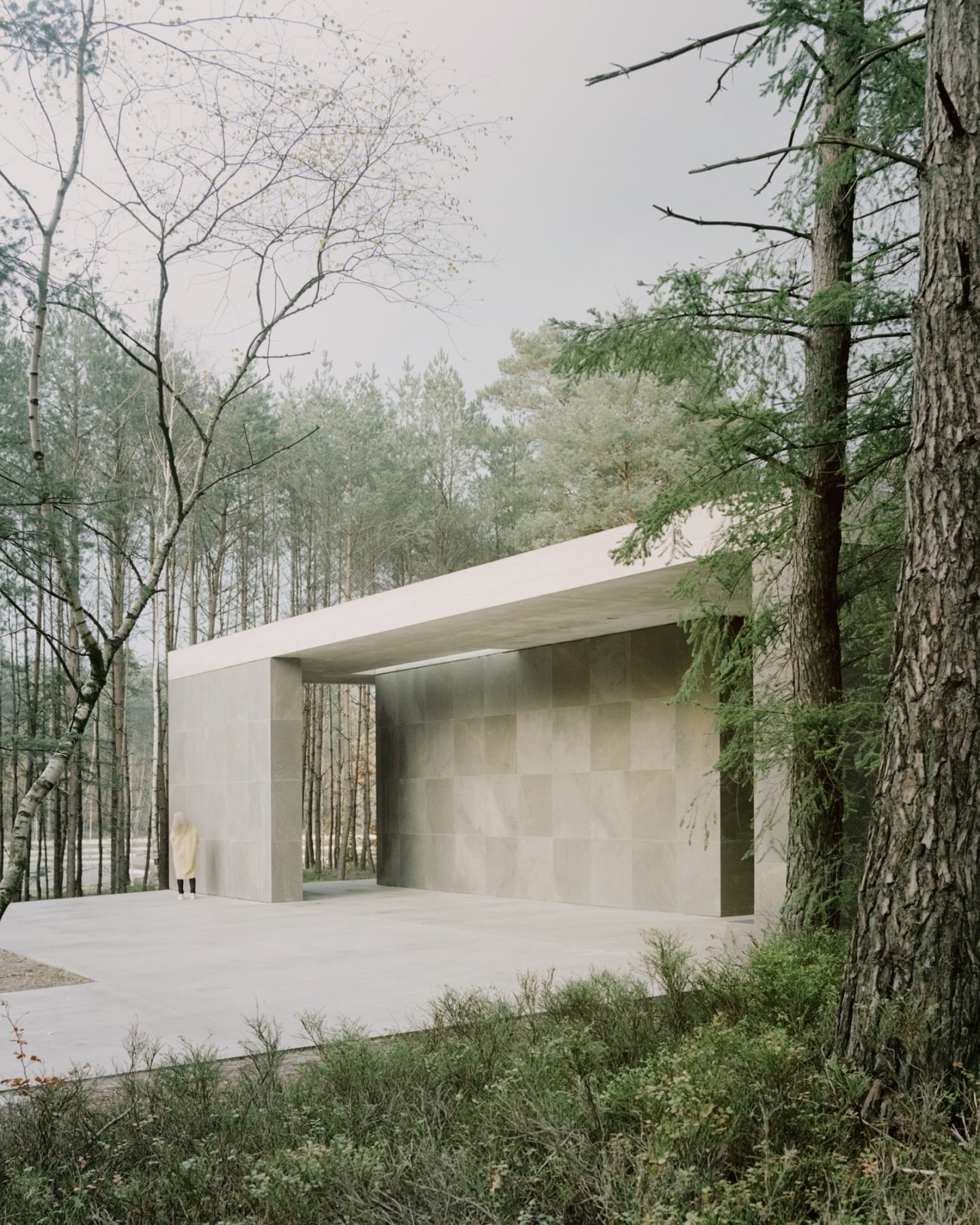
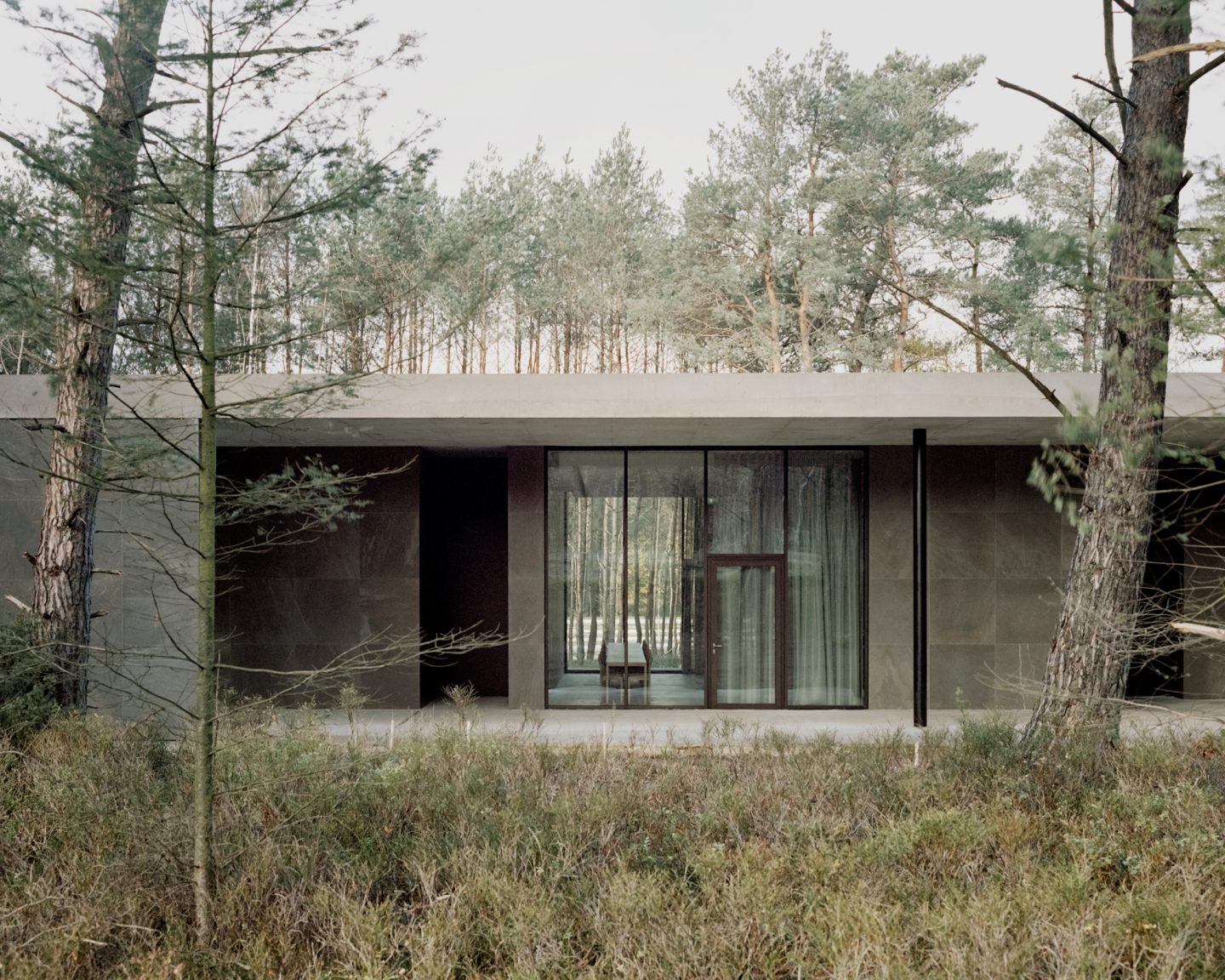
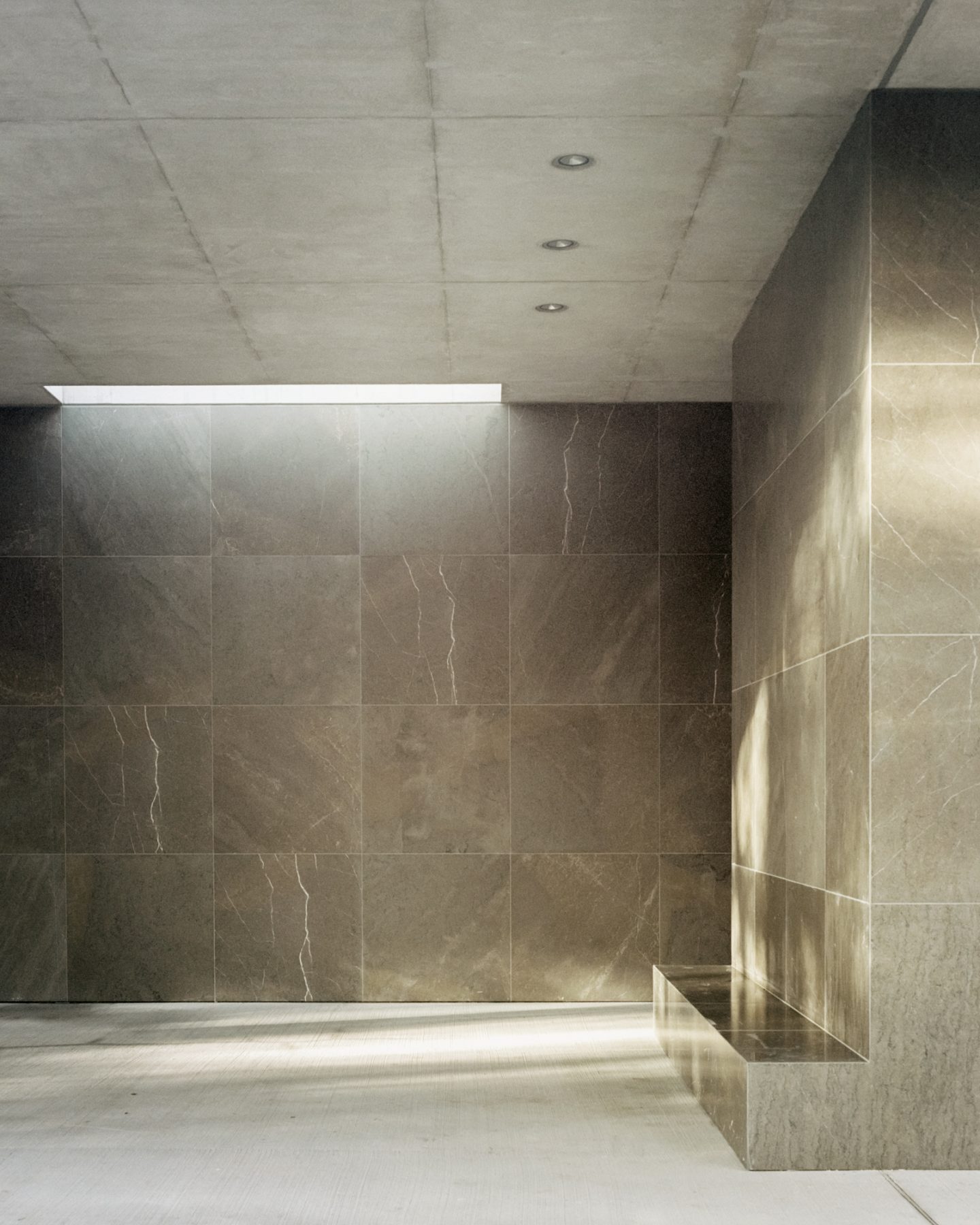
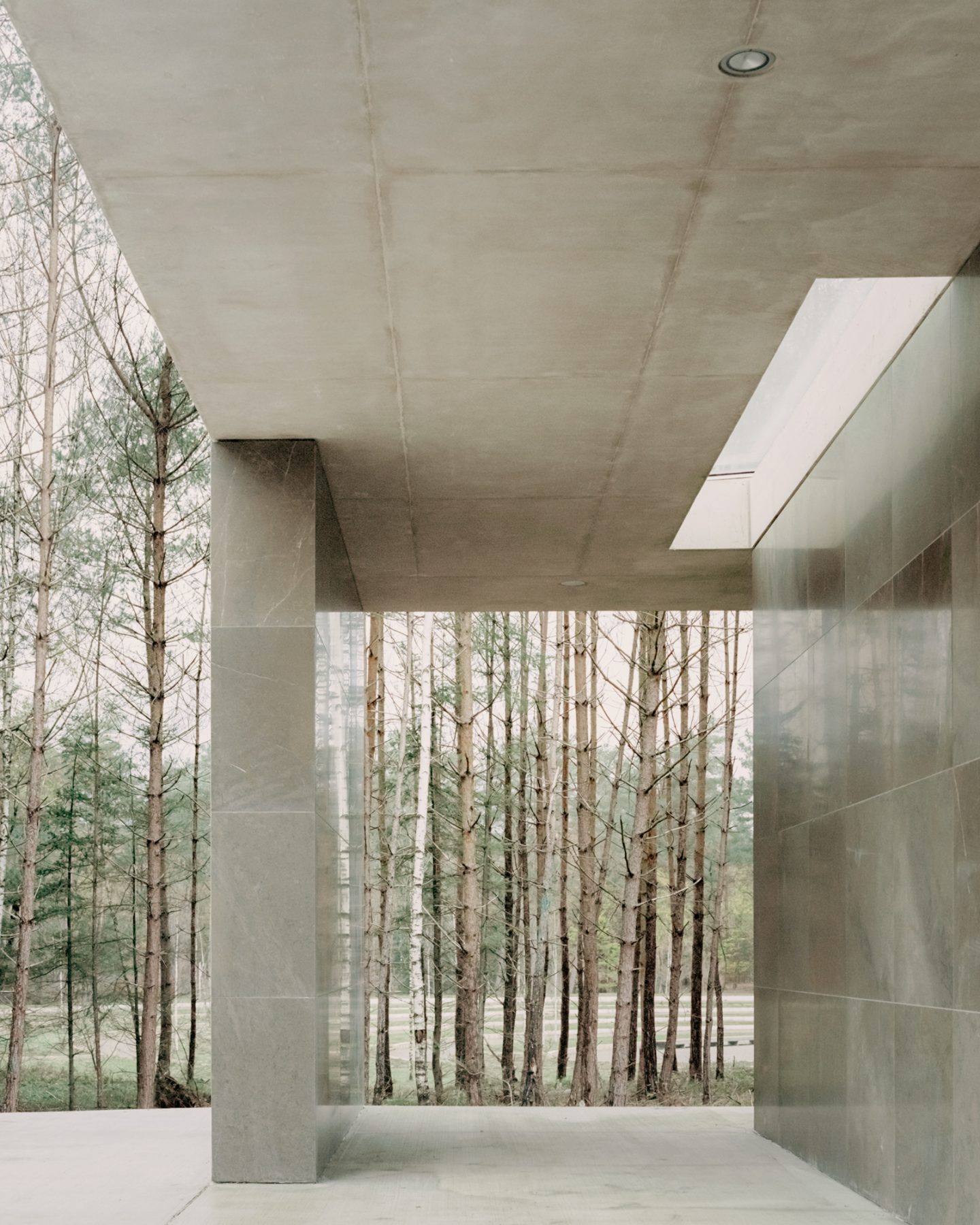
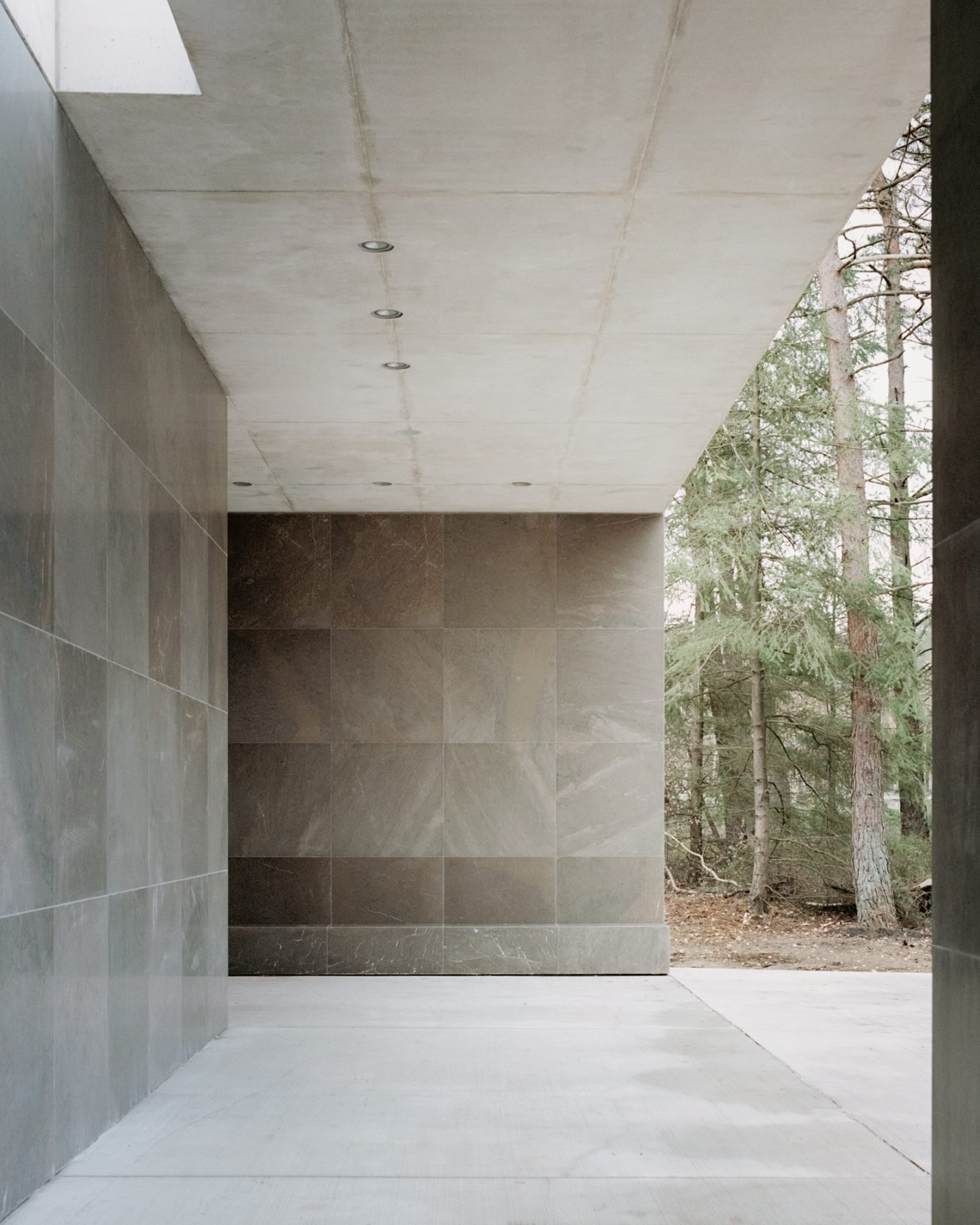
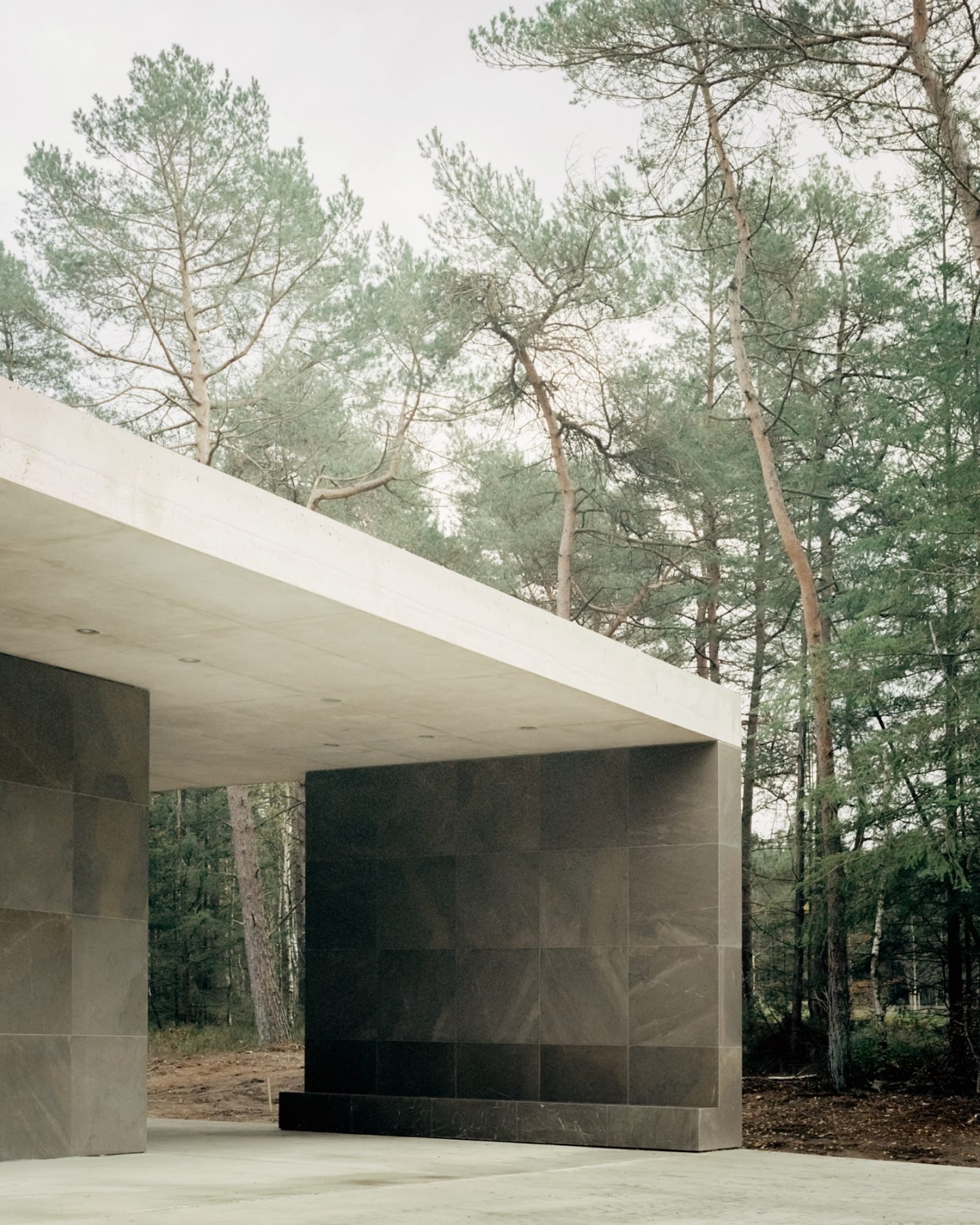
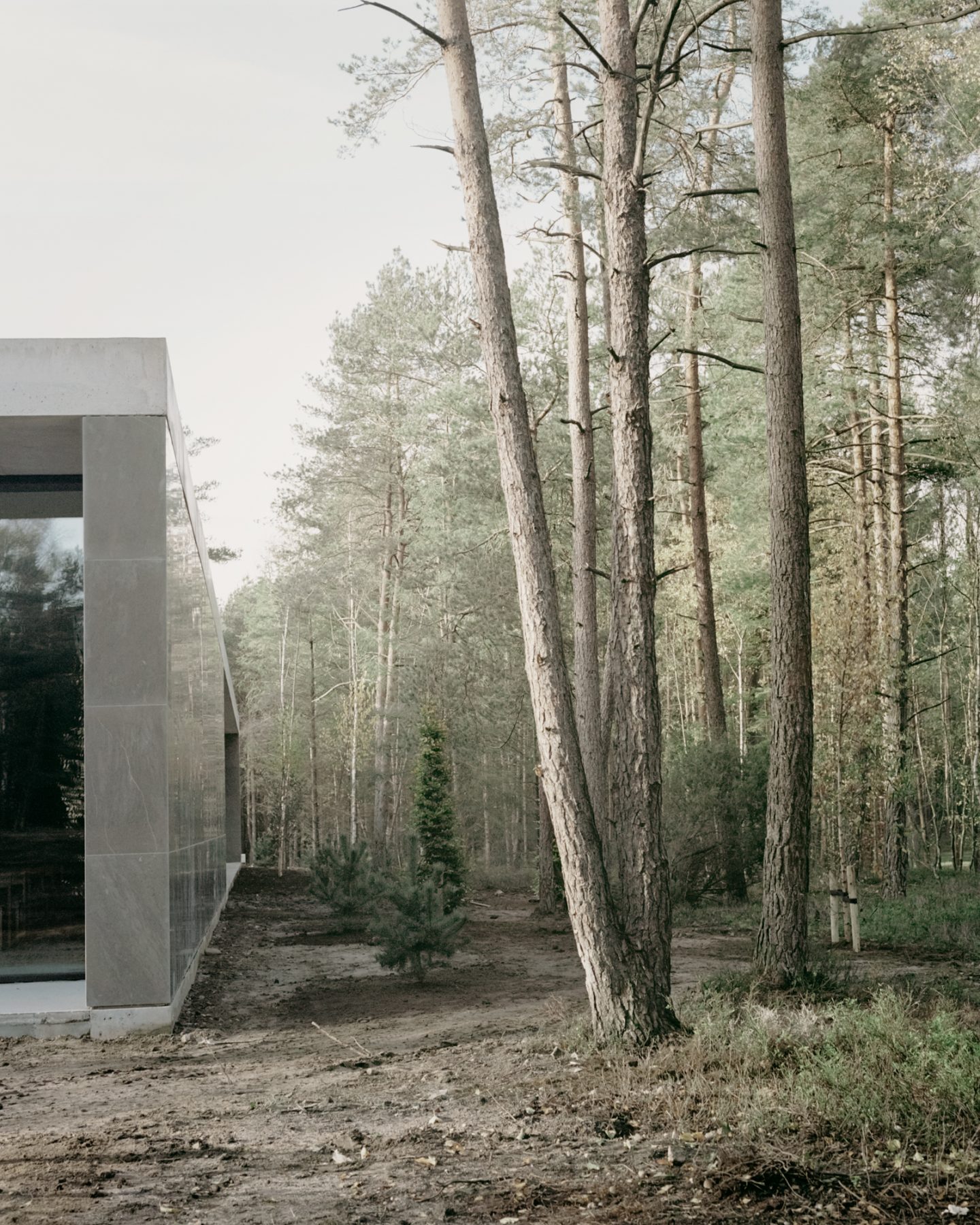
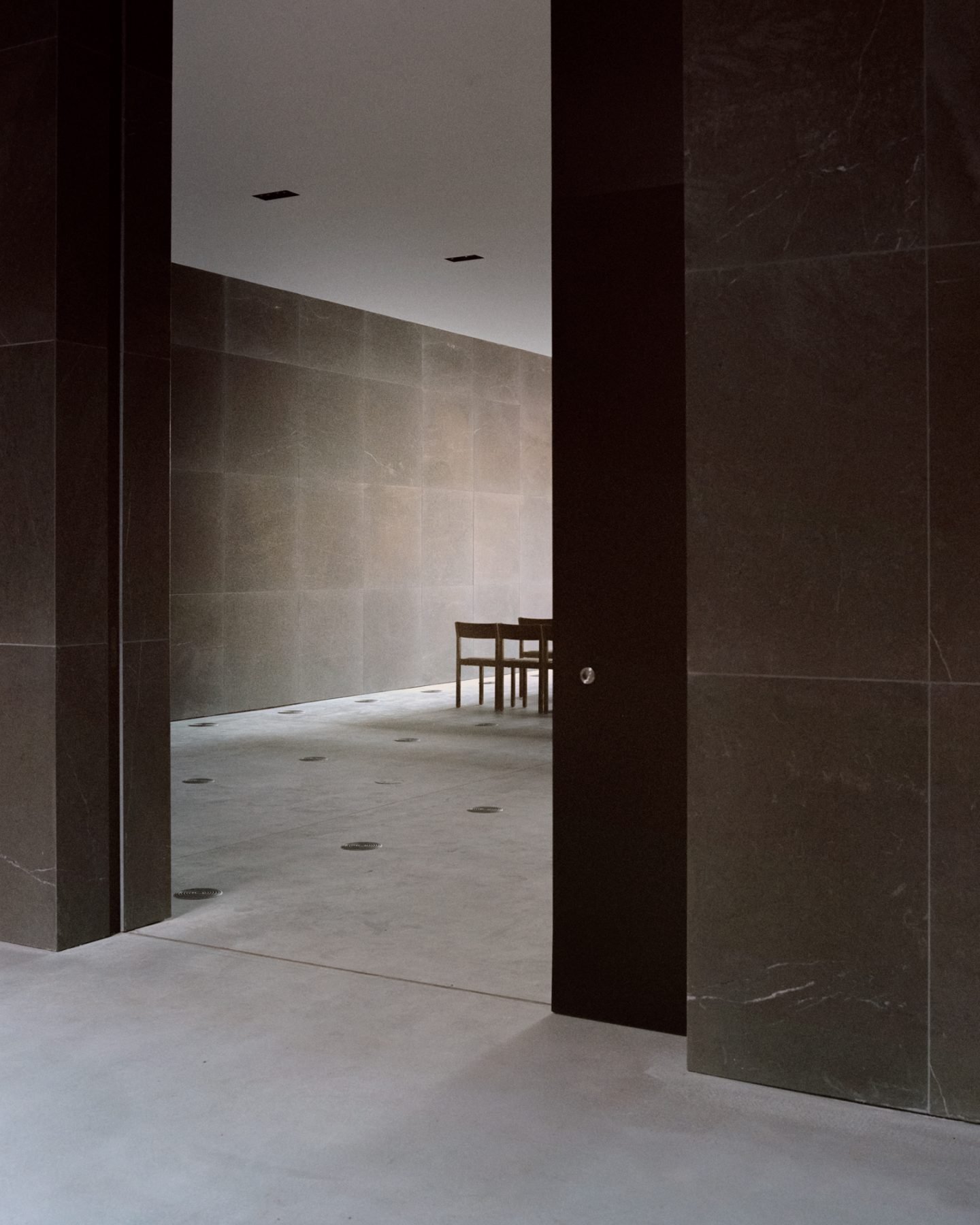
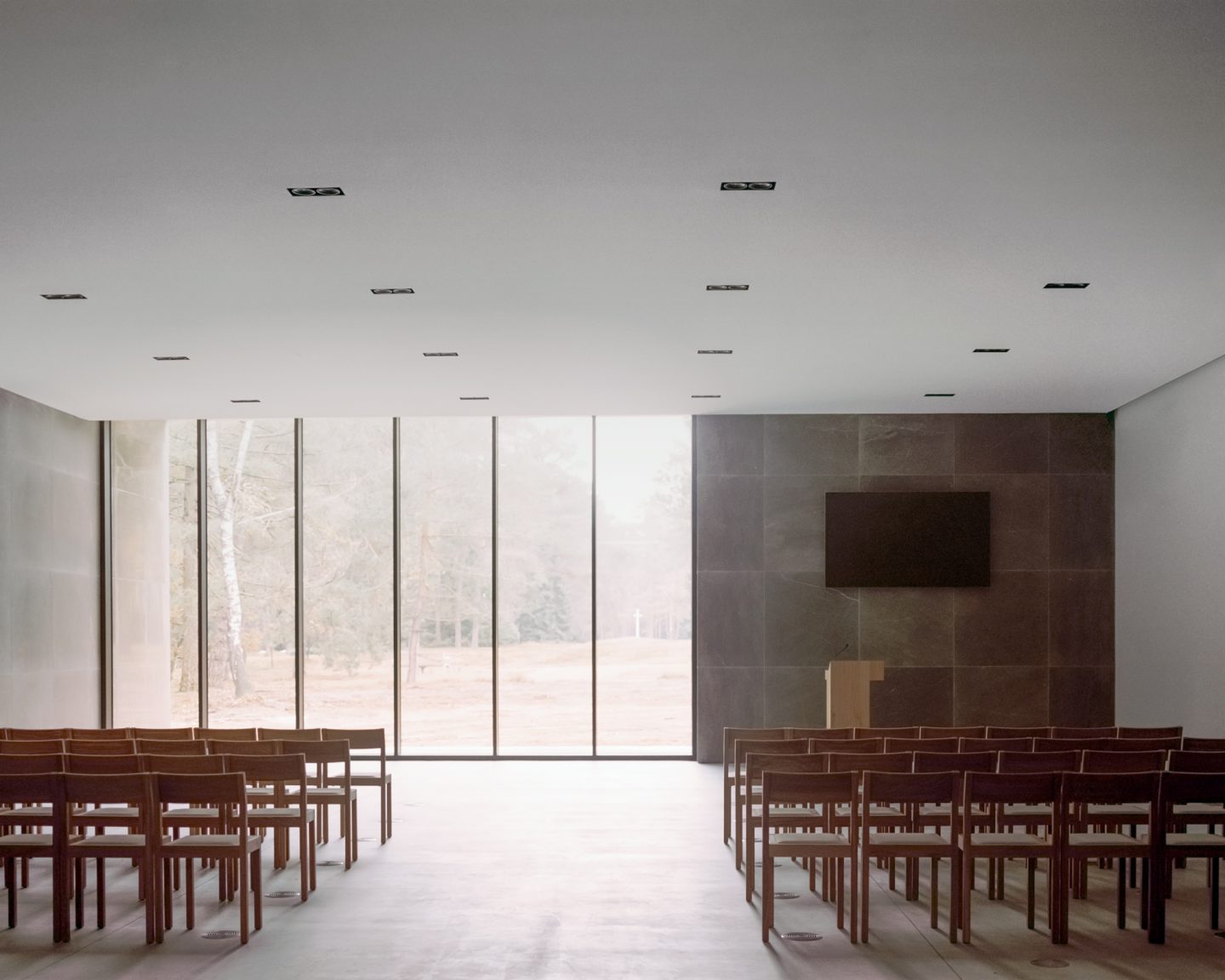
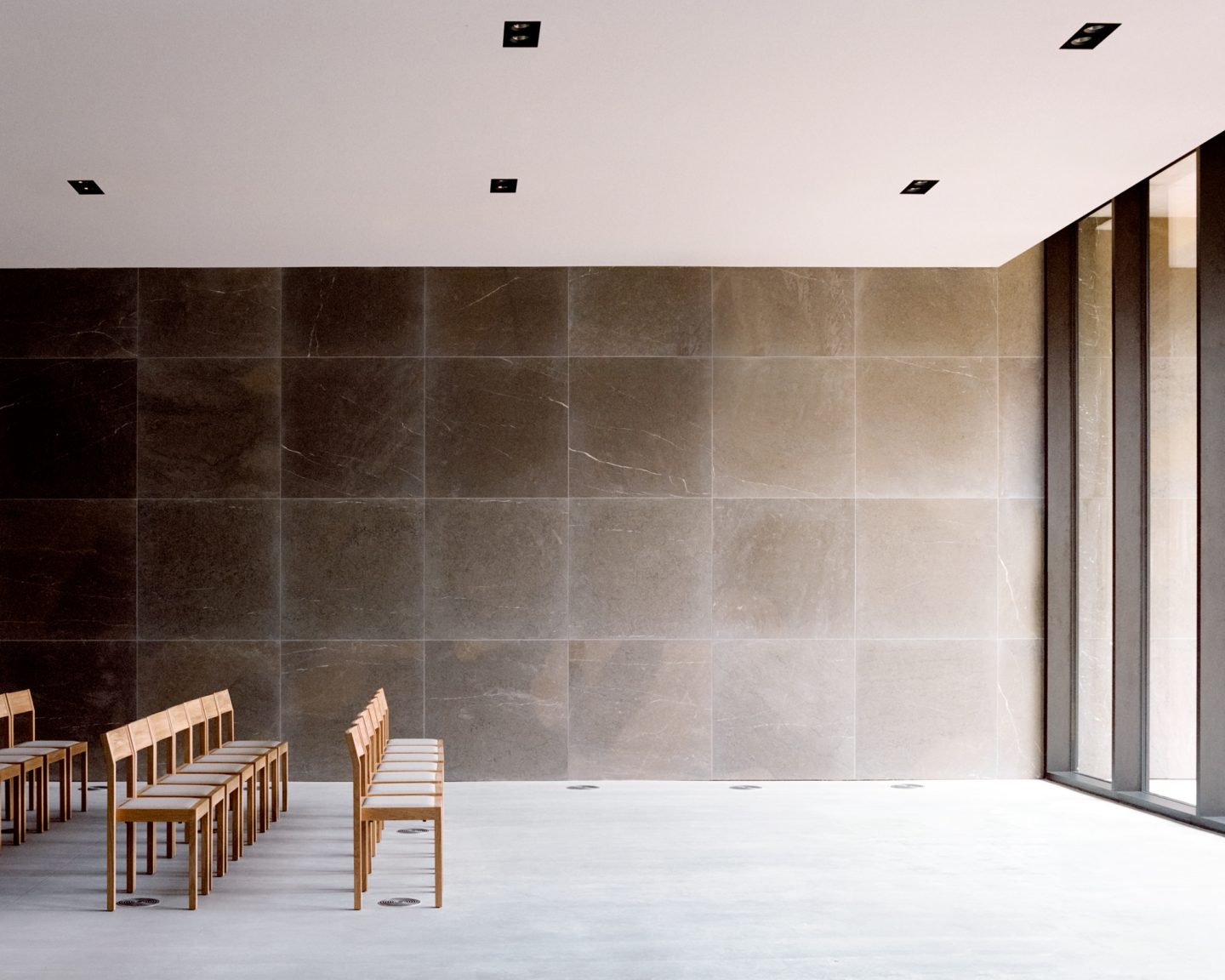
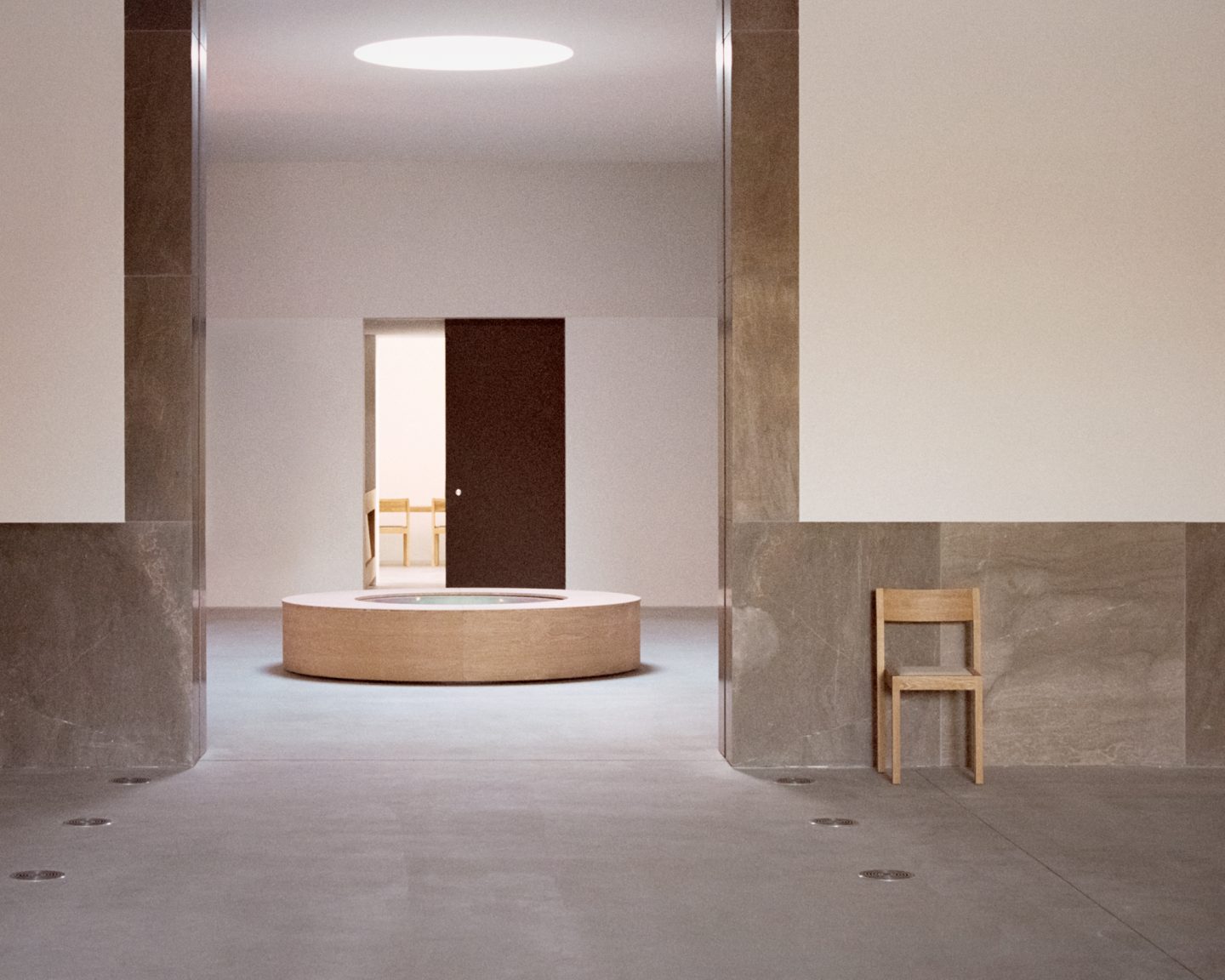
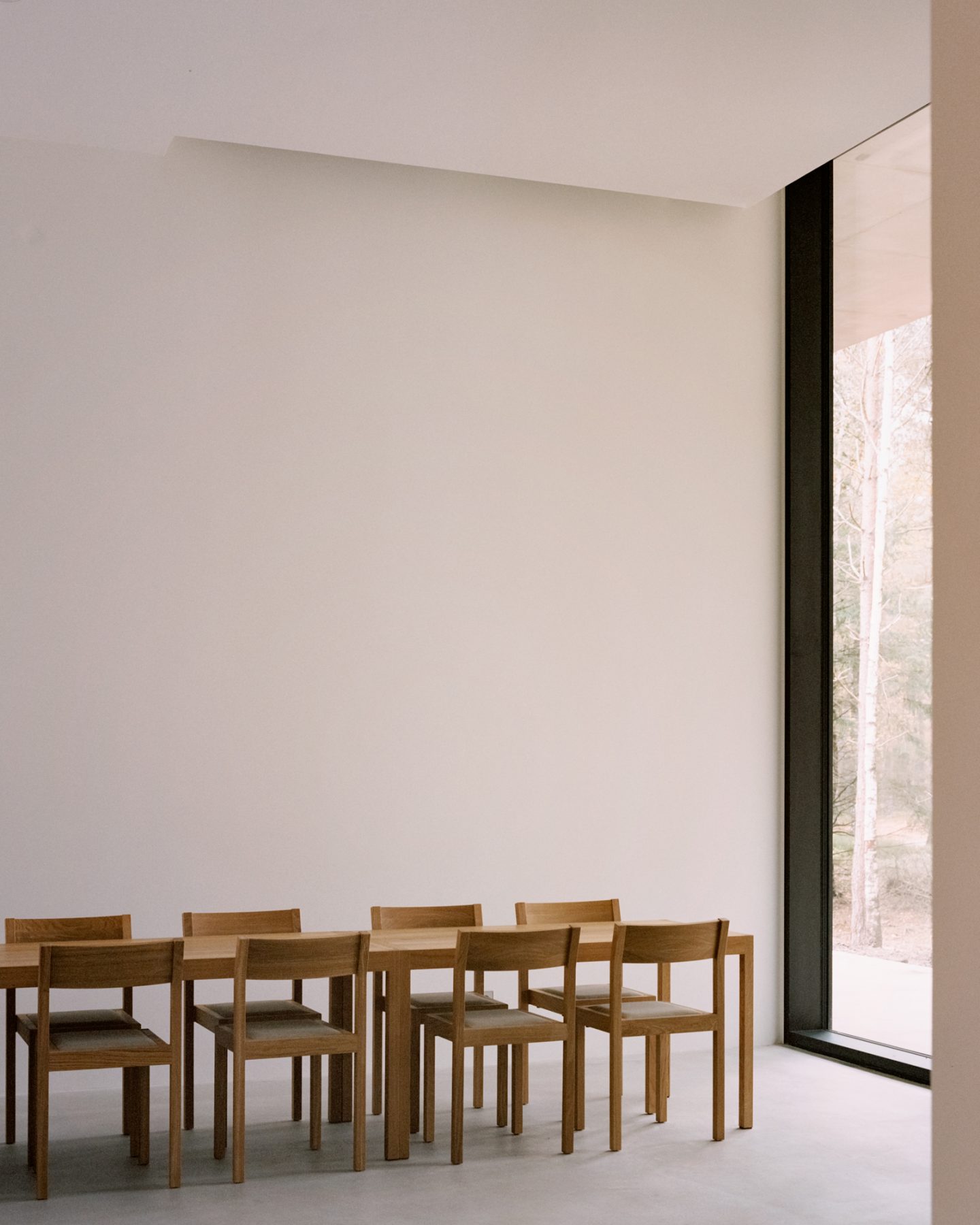
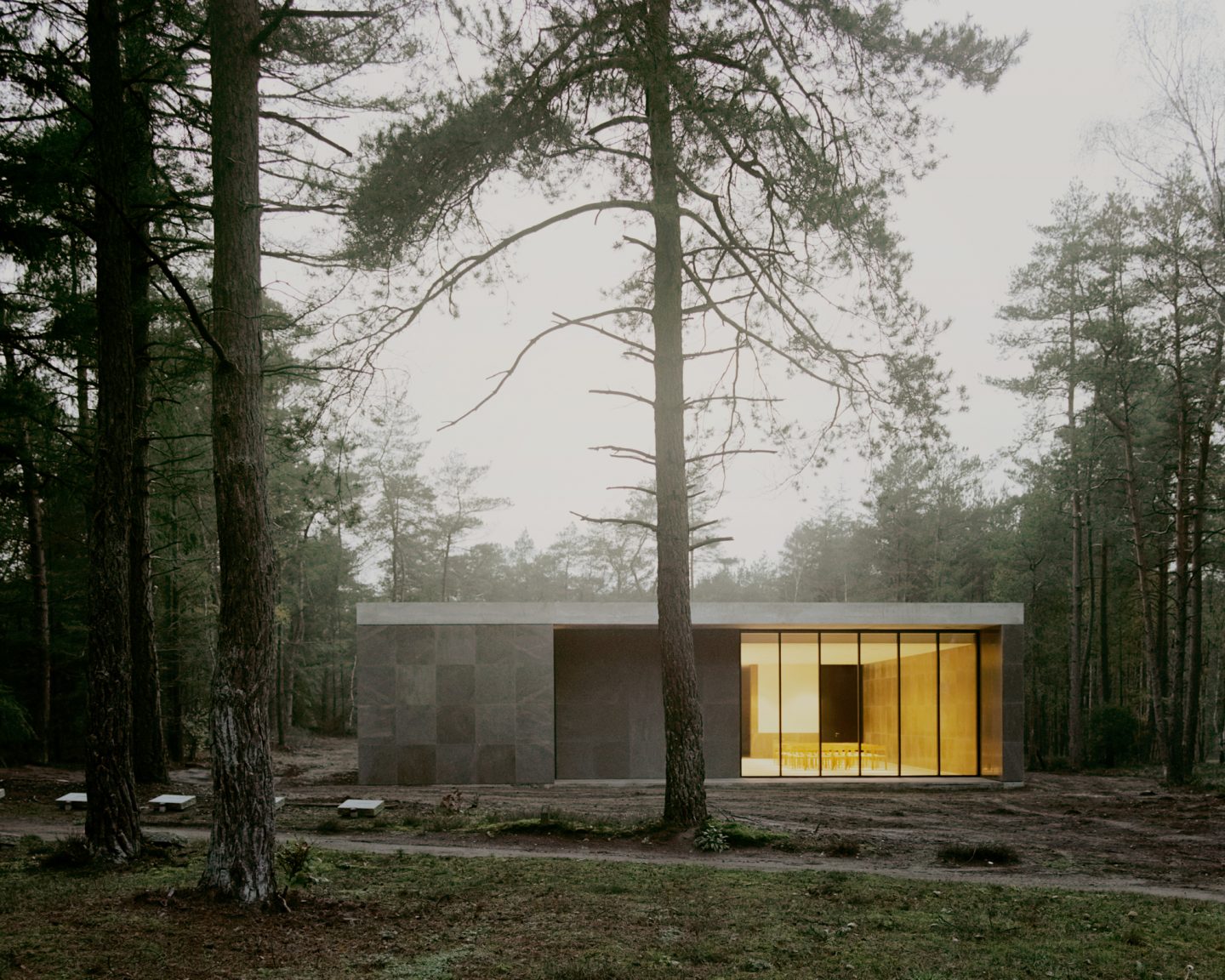
All images © Simone Bossi
